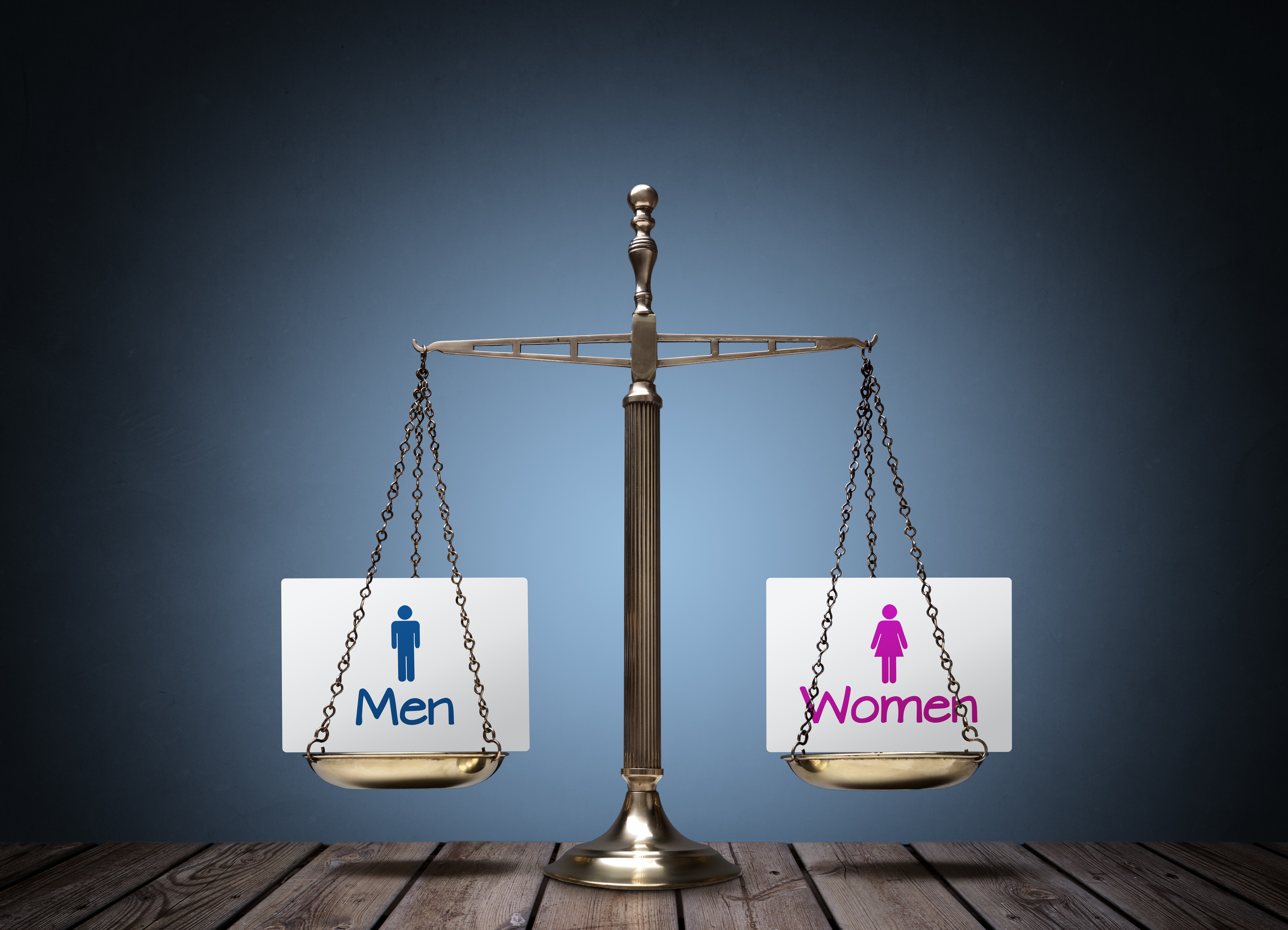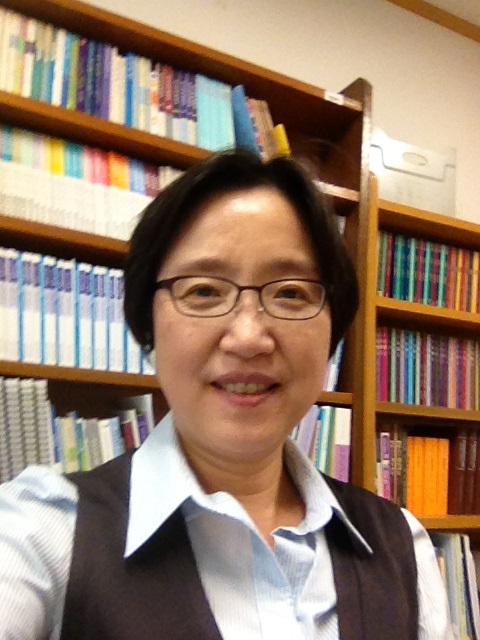
These days, discussions about gender equality are active on SNS and the Internet. Young women raise their voices for gender equality and criticize men’s prejudice against women. However, some men argue that they get reverse discrimination caused by some policies which give consideration only to women, for example, women-only compartments in the subway and parking lots. They also say gender equality in Korea has already been realized. Therefore, in this issue, I will write about gender conflict in Korea and the reasons for and solutions to that problem.

● Gender Inequality in Korea
Gender inequality is unequal treatment of or discrimination against individuals based on their gender. It can appear in many ways. The first is the myth that one gender is better than the opposite gender. The second is the myth that each gender’s characteristics are different. The third is hatred, hostility, and distrust of a specific gender. The last is policies that disadvantage a specific gender, for example, the patriarchal family system and the military service extra points system. According to the National Human Rights Commission Act, gender inequality includes all special treatment, exclusion, discrimination, unfair treatment, and sexual harassment of a gender in any area.
According to the 2015 Global Gender Gap Report, the gender gap in Korea was big, 115th of 145 countries. Economic participation and opportunities for women ranked lowest at 125th among the evaluation areas. Women’s economic participation has improved gradually, but the rate is slower than other countries. The Ministry of Gender Equality and Family said women’s status in Korea is worse than other countries and Korean society has to resolve gender inequality.
There are many reasons for gender inequality in Korea, but the basic reason is gender stereotypes. Men still view themselves as superior in society, whereas women have more restrictions in Korea. Women’s studies scholars have indicated Korean society is male dominated and a patriarchal country, so women’s status is lower than men. However, women’s economic activity has increased since 1990. Therefore, gender conflict has started over gender equality.

● Gender Conflict in Korea
Gender conflict is caused by discrimination in the labor market and policy. The first example is the family registry system called Hoju-je in Korea. It justified gender discrimination based on Confucian ideas and gender stereotypes. Although Hoju-je was abolished in 2010, Korean society still thinks men have to do economic activity and women have to do household work because it is more suitable for them. Because of this social mood, married women also face an uncomfortable situation at their workplace when they take maternity leave and can’t focus on work because of childcare. As a result, men blame women for not having responsibility for their work. However, women argue the real problem is the male-dominated society and say Korean society needs more women’s policies and to change the male-dominated social mood.
The second system is the military service extra points system. It gave extra points to male applicants who had completed military service in civil service examinations. It was ruled unconstitutional in 1999. However, these days, many young people take the civil service exam. Men argue for reviving the military service extra points system. However, women claim that the system is unfair to women and disabled people who can’t do military service. This issue is the most popular now, especially for young men who demand social advantage because they do military service.
The last policy is the gender quota system. It is a positive step to support women. The gender quota system in Korea has applied in politics and employment since 2000. Following this system, political parties, the civil service, and private and public companies have to employ a specific proportion of women. However, there is resistance because men feel that the system is reverse discrimination and a disadvantage to men. They also say that the system is unfair and interrupts a company’s freedom to choose employees. On the other hand, women argue that the system is an active measure to resolve gender inequality.
Gender conflict in Korea has occurred due to social changes in women’s policies and abolishing sexual discrimination. Men argue women demand too much, but women say Korea is still a male dominated society. Korean society has been trying to achieve gender equality. Gender conflict is a natural process in making an equal society.

●Interview with the Director of Keimyung Women’s Studies Institute
I interviewed Cho Joo-hyun, who is the director of Keimyung Women’s Studies Institute. I asked about the causes of gender conflict and solutions to resolve gender conflict in Korea.
1.Please introduce yourself and Keimyung Women’s Studies Institute.
I am Cho Joo-hyun. I am the director of Keimyung Women’s Studies Institute. I majored in women’s studies at college and sociology (especially feminism) at graduate school. I am also the chair of the Department of Women’s Studies in Keimyung Graduate School of Policy Studies.
The institute was founded in 2003 as a special institute. After five years, it became a formal institute of Keimyung University. We research recent gender issues and have published a journal called Gender and Culture once a year since 2008. The institute provides seminars related to women’s problems three times a semester. We have signed MOUs and held conferences with gender research centers from foreign universities in China and Hong Kong.
2.What is the reason for gender conflict in Korea?
Gender conflict started with neo-liberalism and women’s policy. Neo-liberalism criticizes the intervention of the government in the market and treats a free market and free economic activity as the most important things. The first gender conflict was abolishing extra points for discharged soldiers. After the constitutional court abolished the extra points, most men didn’t care because at that time, they didn’t have to worry about employment. However, since Korean society has been affected by neo-liberalism, Korean society has suffered more competition, especially in employment. Many young people have experienced the unemployment crisis, while at the same time, the Korean government has pursued women’s policies for gender equality. Men are angry about abolishing the military extra points and the unemployment crisis and blame women for that problem. They don’t realize the real cause is neo-liberalism, not women’s policy.
3.How can we resolve gender conflict?
We have to discuss the real causes of gender conflict and inequality to make a better society. Many radical men and women just focus on inequality. Arguing with the opposite gender is not helpful to resolve the conflict. We have to discuss how to make a better society to achieve stability and equality.
We should make more opportunities to discuss that topic logically. This is not a competition between men and women. We need to discuss and debate gender inequality to negotiate a social agreement.
4.How can we achieve gender equality?
Men and women should work together to create an equal society. We have to solve gender inequality problems about working hours, childcare, housework, caring for older people, work, family, and education. Social standards have to change to make a social agreement about gender equality. In the past, many gender problems were resolved by laws and government policies. However, changing our fundamental values and standards will make a more positive social change than force. It is not easy, but we can do it.
Now, a lot of people are interested in the gender inequality problem. Publicizing the gender inequality issue is important to improve gender equality. Gender equality is a human right. I hope Korean society will have a logical discussion to become an equal society.
